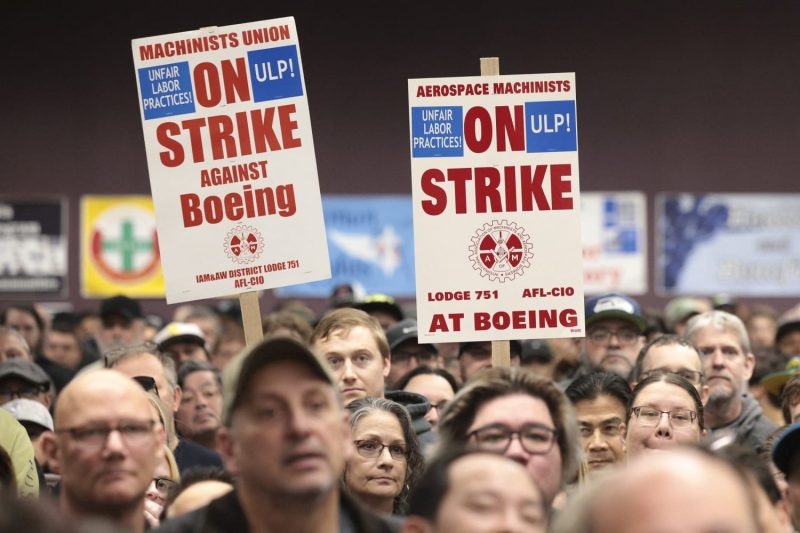Following weeks of shutdowns and negotiations, the next significant development in resolving the Boeing strike may be a few days away. Boeing workers are expected to cast their votes on a new proposal on the negotiation table, an exercise that could not only dictate the fate of the strike but also transform the dynamics between the company and its employees.
In summary, the Boeing strike, which has seen incalculable disruption both to the company and its workers, was triggered by issues revolving around health benefits, job security, and salary increment related commitments. Workers, feeling short-changed, downed their tools, forcing the world’s largest aircraft manufacturer to halt its operations.
The proposed agreement, per the Union’s statement, has been designed to assuage the workers’ concerns on a comprehensive scale. It guarantees job security by prioritizing the existing workforce over outsourcing or subcontracting. This presents an important step in addressing one of the most contentious issues that led to the strike. Notably, this will also be a win for the labor unions, who champion the rights and security of workers.
Aside from job security, the offer also promises to enhance the general welfare of the workers by giving them a say in how their health benefits are managed. This approach ensures that any changes that the company may wish to apply to the employees’ benefits package must be mutually agreed upon by both parties.
Continuing reassurances in the new proposal relates to salary increments and adjustments. Going forward, the workers can expect predictable and guaranteed salary hikes. This move represents the company’s commitment to maintaining industry-competitive salaries, thereby limiting any potential cases of salary-related discord in the future.
However, as this proposal awaits a vote, it has elicited varied reactions among the workers. Some workers have applauded the progress and the apparent willingness of the Boeing Company to address their grievances. Others remain skeptical, with fears that the company may not honor these commitments given previous back-and-forths.
It’s crucial to mention that while the outcomes of the upcoming vote will determine the immediate direction of the goings-on at Boeing, the workers’ sentiments will likely dominate the narrative. This underscores the need for an amicable resolution to safeguard Boeing’s reputation and maintain a harmonious relationship between all parties involved.
In conclusion, the Boeing strike presents an opportunity to reshape the labor management culture, not just for Boeing, but for other industries as well. As the world awaits the vote’s outcome, the situation challenges other companies and workers to rethink their labor-management strategies.
This most recent development is a telling sign of a shift in labor management patterns. Boeing, needing to maintain production, appease its workforce, and protect its reputation, has put forth a proposal that not only addresses workers’ urgent demands but also takes a giant step towards promoting a new dimension of labor relations.
However, as the vote on the proposal ensues, it is worth noting that harmony in the labor industry can only be achieved through continual dialogues, agreement reviews, and an unquestionable commitment by everyone involved. Observers, analysts, and stakeholders eagerly await the outcome of the vote, an outcome that will send ripples throughout the sphere of labor management.






























